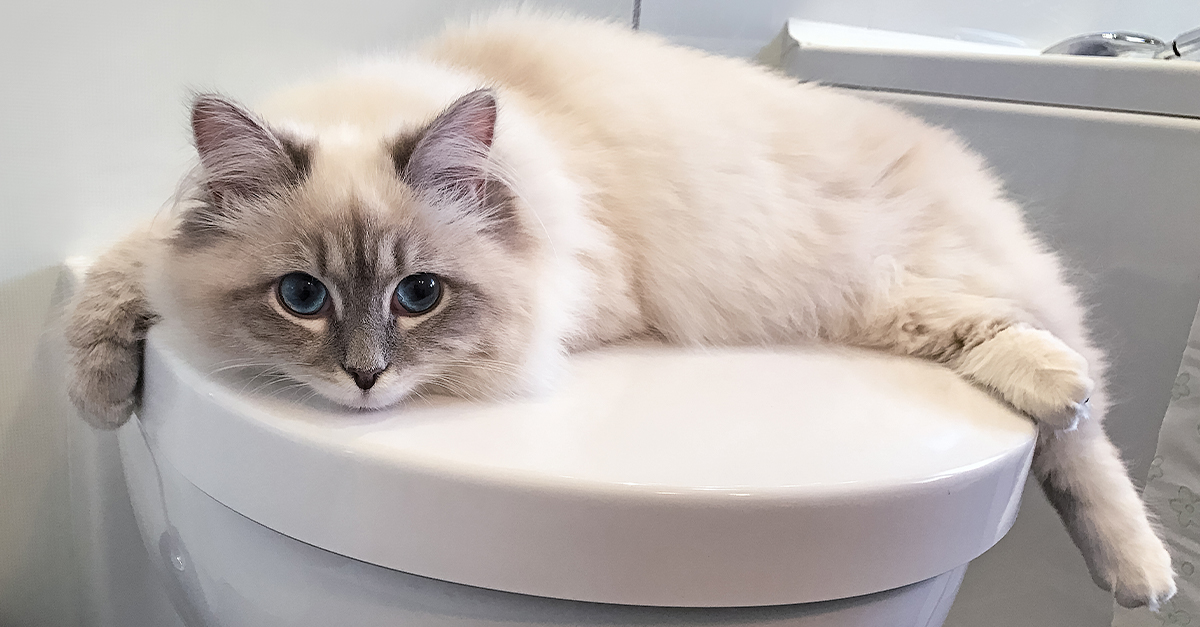Potential Risks of Flushing Cat Poop Down Your Toilet - Tips for Better Disposal
Potential Risks of Flushing Cat Poop Down Your Toilet - Tips for Better Disposal
Blog Article
What're your thoughts and feelings on Don’t flush cat feces down the toilet?

Introduction
As cat proprietors, it's necessary to bear in mind exactly how we take care of our feline good friends' waste. While it might seem practical to purge cat poop down the bathroom, this technique can have harmful consequences for both the setting and human health and wellness.
Alternatives to Flushing
The good news is, there are much safer and extra accountable means to dispose of feline poop. Think about the complying with options:
1. Scoop and Dispose in Trash
The most typical technique of getting rid of feline poop is to scoop it right into a biodegradable bag and toss it in the trash. Make certain to use a specialized trash inside story and take care of the waste immediately.
2. Use Biodegradable Litter
Select naturally degradable feline litter made from products such as corn or wheat. These litters are environmentally friendly and can be securely dealt with in the trash.
3. Hide in the Yard
If you have a lawn, consider hiding pet cat waste in an assigned location away from vegetable yards and water resources. Make sure to dig deep adequate to prevent contamination of groundwater.
4. Mount a Pet Waste Disposal System
Invest in a pet waste disposal system especially designed for feline waste. These systems utilize enzymes to break down the waste, reducing smell and ecological impact.
Health and wellness Risks
In addition to ecological problems, purging pet cat waste can also posture health and wellness risks to human beings. Cat feces may contain Toxoplasma gondii, a parasite that can trigger toxoplasmosis-- a possibly extreme health problem, particularly for pregnant females and people with weakened immune systems.
Ecological Impact
Purging cat poop introduces harmful virus and parasites into the water supply, posturing a substantial threat to marine communities. These contaminants can negatively affect aquatic life and compromise water top quality.
Verdict
Responsible family pet possession prolongs beyond offering food and shelter-- it likewise includes proper waste management. By avoiding purging feline poop down the bathroom and choosing alternate disposal methods, we can lessen our environmental footprint and secure human health.
Why You Should Never Flush Cat Poop Down the Toilet
A rose by any other name might smell as sweet, but not all poop is created equal. Toilets, and our sewage systems, are designed for human excrement, not animal waste. It might seem like it couldn’t hurt to toss cat feces into the loo, but it’s not a good idea to flush cat poop in the toilet.
First and foremost, assuming your cat uses a litter box, any waste is going to have litter on it. And even the smallest amount of litter can wreak havoc on plumbing.
Over time, small amounts build up, filling up your septic system. Most litter sold today is clumping; it is made from a type of clay that hardens when it gets wet. Ever tried to scrape old clumps from the bottom of a litter box? You know just how cement-hard it can get!
Now imagine just a small clump of that stuck in your pipes. A simple de-clogger like Drano isn’t going to cut it. And that means it’s going to cost you big time to fix it.
Parasitic Contamination
Believe it or not, your healthy kitty may be harboring a nasty parasite. Only cats excrete Toxoplasma in their feces. Yet it rarely causes serious health issues in the cats that are infected. Most people will be fine too if infected. Only pregnant women and people with compromised immune systems are at risk. (If you’ve ever heard how women who are expecting are excused from litter cleaning duty, Toxoplasma is why.)
But other animals may have a problem if infected with the parasite. And human water treatment systems aren’t designed to handle it. As a result, the systems don’t remove the parasite before discharging wastewater into local waterways. Fish, shellfish, and other marine life — otters in particular — are susceptible to toxoplasma. If exposed, most will end up with brain damage and many will die.
Depending on the species of fish, they may end up on someone’s fish hook and, ultimately on someone’s dinner plate. If that someone has a chronic illness, they’re at risk.
Skip the Toilet Training
We know there are folks out there who like to toilet train their cats. And we give them props, it takes a lot of work. But thanks to the toxoplasma, it’s not a good idea.

As an enthusiastic reader about How to Dispose of Cat Poop and Litter Without Plastic Bags, I assumed sharing that piece of content was valuable. I beg you take a moment to share this page if you appreciated it. Thank you so much for going through it.
Get Started Report this page